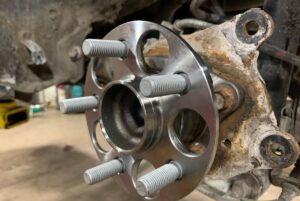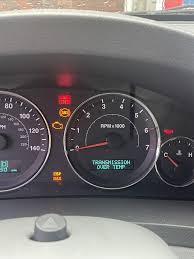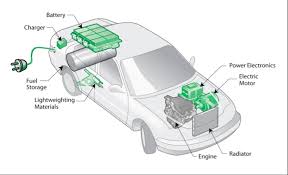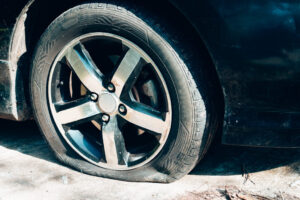How Does Cold Weather Affect Your Car?
Cold weather is more than just a seasonal inconvenience; it can significantly impact the performance, longevity, and safety of your vehicle. Understanding how cold weather affects your car can help you take preventive measures to avoid breakdowns and costly repairs. Let’s dive into the common ways freezing temperatures can affect your vehicle and what you can do about it.
1. Battery Performance Drops
Cold weather can dramatically reduce your car battery’s performance. At 32°F, a car battery can lose about 20% of its capacity, and at 0°F, it can lose as much as 50%. This happens because chemical reactions inside the battery slow down in colder temperatures, making it harder for the battery to generate enough power to start your engine.
Signs of Trouble:
- Slow engine cranking when starting your car.
- Dim headlights or dashboard lights.
Prevention Tips:
- Have your battery tested before winter begins.
- Ensure the battery terminals are clean and free of corrosion.
- Use a battery heater in extremely cold climates.
2. Thickened Fluids
In cold weather, the fluids in your car, such as engine oil, transmission fluid, and brake fluid, become thicker and less efficient. This can make it harder for the engine to turn over, reduce fuel efficiency, and strain the internal components.
Prevention Tips:
- Use winter-grade oil or synthetic oil, which flows more easily in cold temperatures.
- Check and top off all fluids before the winter season.
- Allow your car to warm up for a few minutes before driving to let the fluids circulate properly.
3. Tire Pressure Drops
For every 10°F drop in temperature, your tires lose about 1 PSI (pound per square inch) of pressure. Underinflated tires can lead to poor traction, reduced fuel economy, and increased wear on the tire tread.
Prevention Tips:
- Check your tire pressure weekly during cold weather.
- Inflate your tires to the recommended PSI level, which can be found in your owner’s manual or on the sticker inside the driver’s door frame.
- Consider switching to winter tires for better traction on icy or snowy roads.
4. Problems with the Fuel System
Gasoline can thicken slightly in cold temperatures, but the real risk comes from condensation in your gas tank. Moisture can freeze in the fuel lines, preventing fuel from reaching the engine.
Prevention Tips:
- Keep your gas tank at least half full during the winter to minimize condensation.
- Use a fuel stabilizer or antifreeze additive if your car will sit unused for long periods.
5. Frozen Windshield Wipers and Washer Fluid
Freezing temperatures can make your wiper blades brittle and less effective, while washer fluid can freeze and become unusable, making it difficult to maintain visibility.
Prevention Tips:
- Replace worn wiper blades with winter-grade ones designed to withstand cold weather.
- Use a windshield washer fluid rated for sub-zero temperatures.
- Cover your windshield overnight to prevent ice buildup.
6. Strained Belts and Hoses
Cold weather makes rubber components like belts and hoses more brittle, increasing the risk of cracks and breaks. These components are essential for your car’s heating system, coolant flow, and overall operation.
Prevention Tips:
- Inspect belts and hoses for signs of wear before winter.
- Replace any components that appear cracked, brittle, or frayed.
7. Thickened Grease in Moving Parts
Moving parts like door locks, hinges, and steering mechanisms can be affected by cold weather as the grease that lubricates them thickens, causing them to stiffen or stick.
Prevention Tips:
- Apply de-icing lubricant to locks and hinges.
- Regularly lubricate moving parts to ensure they function smoothly.
8. Decreased Fuel Efficiency
Cold air is denser, and your car’s engine requires more fuel to compensate for the drop in temperature. Additionally, idling the engine to warm up the car also contributes to higher fuel consumption.
Prevention Tips:
- Combine errands into one trip to minimize cold starts.
- Avoid excessive idling; modern engines warm up faster when driven gently.
9. Issues with the Exhaust System
Cold weather can cause condensation to form in the exhaust system. Over time, this moisture can lead to rust or freezing that might block the system.
Prevention Tips:
- Regularly inspect the exhaust system for damage or blockages.
- Drive your car for at least 20 minutes per trip to ensure the system heats up enough to evaporate condensation.
10. Increased Likelihood of Rust
Salt and chemicals used on icy roads can accelerate rust formation on your car’s undercarriage and exposed metal parts.
Prevention Tips:
- Wash your car regularly during the winter, paying special attention to the undercarriage.
- Apply a protective wax coating or consider undercoating treatments.
Conclusion: Be Prepared for the Cold
Cold weather is tough on vehicles, but with proactive maintenance and care, you can minimize its effects and keep your car running smoothly throughout the winter. Regular inspections, appropriate winter preparations, and mindful driving habits can save you from unexpected breakdowns and ensure your safety on the road.
Need help getting your car winter-ready? Visit a trusted mechanic or repair shop for a comprehensive winter inspection and maintenance services.






